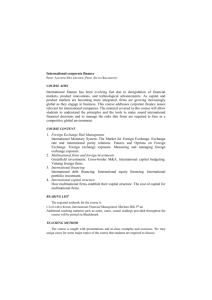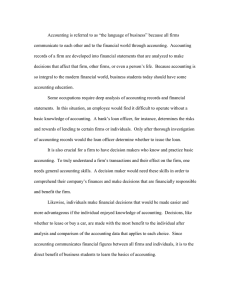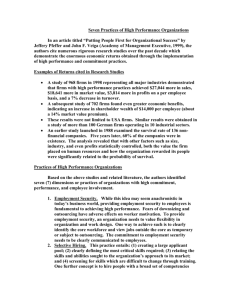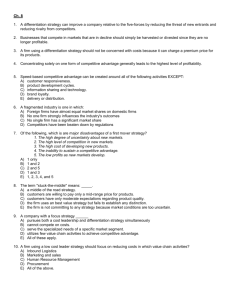Trade Credit Management
advertisement
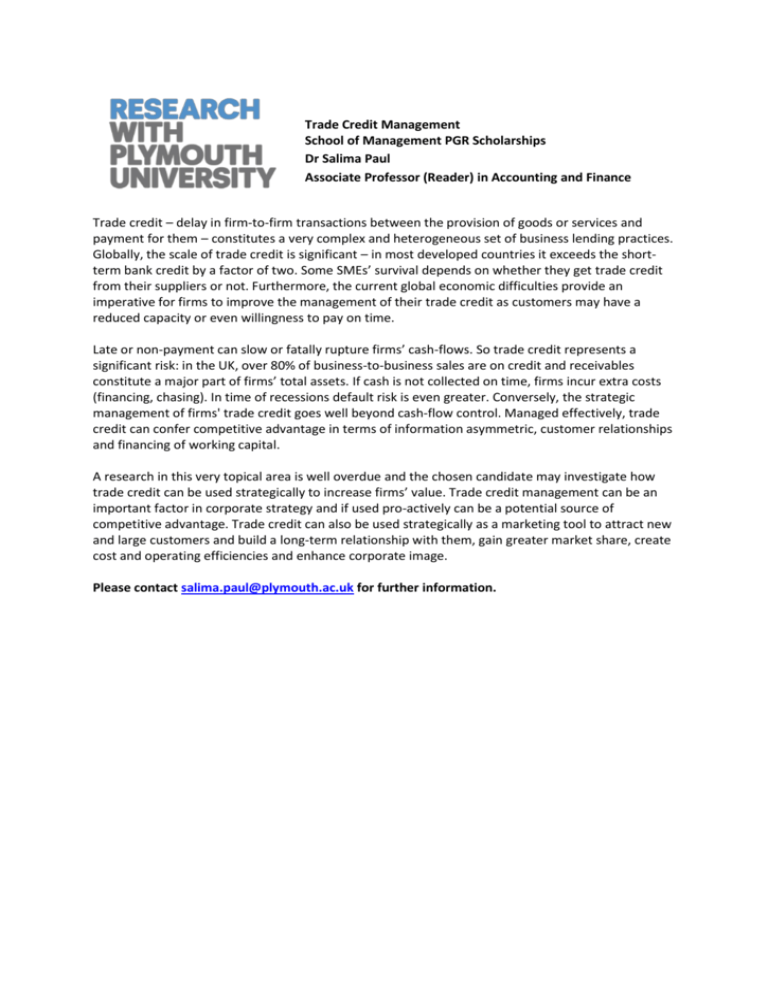
Trade Credit Management School of Management PGR Scholarships Dr Salima Paul Associate Professor (Reader) in Accounting and Finance Trade credit – delay in firm-to-firm transactions between the provision of goods or services and payment for them – constitutes a very complex and heterogeneous set of business lending practices. Globally, the scale of trade credit is significant – in most developed countries it exceeds the shortterm bank credit by a factor of two. Some SMEs’ survival depends on whether they get trade credit from their suppliers or not. Furthermore, the current global economic difficulties provide an imperative for firms to improve the management of their trade credit as customers may have a reduced capacity or even willingness to pay on time. Late or non-payment can slow or fatally rupture firms’ cash-flows. So trade credit represents a significant risk: in the UK, over 80% of business-to-business sales are on credit and receivables constitute a major part of firms’ total assets. If cash is not collected on time, firms incur extra costs (financing, chasing). In time of recessions default risk is even greater. Conversely, the strategic management of firms' trade credit goes well beyond cash-flow control. Managed effectively, trade credit can confer competitive advantage in terms of information asymmetric, customer relationships and financing of working capital. A research in this very topical area is well overdue and the chosen candidate may investigate how trade credit can be used strategically to increase firms’ value. Trade credit management can be an important factor in corporate strategy and if used pro-actively can be a potential source of competitive advantage. Trade credit can also be used strategically as a marketing tool to attract new and large customers and build a long-term relationship with them, gain greater market share, create cost and operating efficiencies and enhance corporate image. Please contact salima.paul@plymouth.ac.uk for further information.




